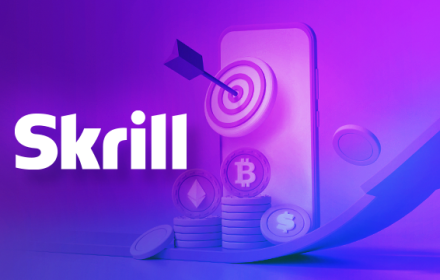How crypto casinos work is a question that players, developers, and investors are increasingly asking. The growth of digital currencies has turned gambling platforms into a full-fledged fintech segment, where rules are dictated not by banks, but by blockchain. While traditional online casinos have built their business around Visa and MasterCard for decades, crypto platforms are betting on Bitcoin and smart contracts, creating a more flexible and sometimes more reliable system.
What are crypto casinos and what is their model based on
A crypto casino is formed as an online casino based on cryptocurrency, where bets and payouts go through blockchain. Transactions are recorded in a distributed ledger without intermediaries. This scheme eliminates delays, reduces fees, and ensures anonymity.
Unlike traditional systems, deposits go directly to the project’s wallet, and withdrawals work through the same mechanism. Each operation is reflected in the network, which eliminates the possibility of hidden data manipulation. Here, transparent logic works: whoever owns the private key controls the balance.
How crypto casinos work compared to traditional ones
In traditional online casinos, players go through verification, confirm their identity, open an account in fiat currency, and only then gain access to games. The cryptocurrency model looks different: all you need is a wallet and coins. Reliable operators still have licenses, but involvement of banks and intermediaries is reduced.
The difference is particularly noticeable in terms of payouts. While traditional casinos promise transfers within 3-5 business days, blockchain ensures instant transfers, limited only by the network confirmation speed. For example, Bitcoin processes a transaction on average in 10 minutes, while networks like Solana do it in seconds.
Advantages and disadvantages of crypto casinos as a gaming tool
Cryptocurrency platforms strike a balance between technological advantages and financial risks. Some characteristics enhance trust and comfort, while others add uncertainties to the gaming process.
How crypto casinos work in terms of convenience and risks is shown by the following balance of factors:
- speed: transactions are confirmed faster than in traditional payment systems;
- fees: most cryptocurrencies charge lower fees than banking tariffs;
- anonymity: registration does not require entering passport data;
- fairness: smart contract mechanics establish rules and prevent their alteration;
- volatility: the value of winnings depends on the coin’s exchange rate, increasing the risk;
- regulation: the lack of unified standards in different countries creates legal uncertainty;
- reliability: depends on the platform’s reputation and the presence of a license.
This creates a dual picture: flexibility and speed on one side, instability and legal gaps on the other.
Safety and fairness in practice
How crypto casinos work in terms of security is determined by blockchain. Each operation is protected by cryptography. Transfers cannot be canceled or deposits hidden. Smart contracts prevent algorithm substitution.
The fairness of games is confirmed by the RTP indicator — the percentage of return to the player. For example, slots with a 96% RTP return 96 coins out of 100 in the long run. In traditional casinos, verification is done through independent laboratories, while crypto platforms implement provably fair algorithms: the code is openly published, and anyone can verify the generation of random numbers.
How deposits, withdrawals, and fees work in crypto casinos
The model is based on wallets for deposits and withdrawals. Players send cryptocurrency to a unique address, and the platform automatically records the deposit. Withdrawals follow the same principle, without waiting for banking confirmations.
Fees depend on the chosen coin. A Bitcoin transfer may cost $2–5, while a transaction on the Tron network may cost less than one cent. This difference shapes a new approach to choosing the currency for gaming.
Bonuses and audience support
How crypto casinos work from a marketing perspective is demonstrated by the bonus system. Traditional platforms offered free spins and cashback, while crypto services added cryptocurrency rewards. For example, a deposit of 0.01 BTC can be doubled on the first top-up.
Customer support remains crucial. Successful projects establish round-the-clock chat, Telegram bot services, and prompt email responses. Against the backdrop of anonymity and the absence of intermediaries, support specifically builds trust and audience retention.
How to choose a crypto casino and not lose your deposit
The choice of a crypto casino directly determines the level of protection of your funds. Proper verification of the license, technologies, and platform reputation helps avoid deposit loss.
To minimize risks, experts recommend evaluating three parameters:
- License and regulation. Official permits from Curacao or Malta confirm the legality of operations.
- Security and smart contracts. Reliable projects publish code and ensure provable fairness.
- Reviews and payout history. Transparent transactions allow checking transfer statistics and avoiding dubious schemes.
It is the combination of these criteria that indicates whether it is worth trusting a cryptocurrency platform with your deposit.
Games and volatility of winnings
How crypto casinos work at the game level is determined not only by slots and roulette. Platforms expand their range to include poker, live dealer games, and tournaments with dynamic prize pools. The main difference from traditional casinos is volatility. A win of 1 ETH today may be worth $1700, but tomorrow it could be $2000 or $1500. Thus, excitement is intensified not only by the game but also by exchange rate fluctuations.
RTP in crypto slots remains close to traditional standards: 95–97%. However, open algorithms allow additional verification of fairness in generation. For example, users can compare the hash value of each session with the source code and ensure that the result has not been altered.
Verification and anonymity: two sides of the same coin
How crypto casinos work in terms of identification remains a significant topic. Some projects completely exclude verification, offering anonymity as a key advantage. All you need is a wallet address to make a deposit and receive a withdrawal.
Other services introduce minimal verification for large sums to comply with regulatory requirements. This hybrid approach allows combining convenience and security. In practice, users can remain anonymous for small bets, while the system adheres to KYC rules for significant amounts.
Regulation and license: building trust
How crypto casinos operate in the legal field depends on jurisdiction. In EU countries, strict control is in place, and projects must meet requirements for licensing, data protection, and financial reporting. The Curacao license remains the most popular option among crypto platforms. It is cheaper and allows operation in dozens of countries, although its reputation is lower than that of Malta or the UK.
Regulation forms the basis of trust. Having a license guarantees that the operator undergoes audits, maintains RTP statistics, and does not interfere with algorithms. For players, this is an indicator of reliability alongside transparent payouts.
Support and intermediaries: where the line is drawn
How crypto casinos work in terms of service shows the attitude toward intermediaries. The absence of banks, processors, and other structures reduces the risks of delays and errors. However, internal support requirements increase.
Instant chat, quick email responses, and the presence of Telegram bots become the standard. The presence of intermediaries is replaced by direct communication with the operator. This format allows for quicker resolution of transaction or bonus issues and helps build reputation.
Fairness and reliability: the foundation of project survival
How crypto casinos operate in the long term depends on fairness and reliability. Without trust, a project cannot retain its audience. Players can easily verify payouts, analyze the blockchain, and share experiences in open sources.
Reliability is built on three elements: a license, transparent smart contracts, and uninterrupted payouts. The absence of at least one factor leads to a reputation decline and rapid audience departure.
Conclusions
How crypto casinos operate today involves blockchain, fast transactions, and fairness without intermediaries. In traditional casinos, licenses and fiat are important, while crypto casinos emphasize speed, transparency, and anonymity, shaping new market rules.
 en
en  de
de  ar
ar  es
es  hi
hi  fr
fr  nl
nl  it
it  pt
pt  el
el 









